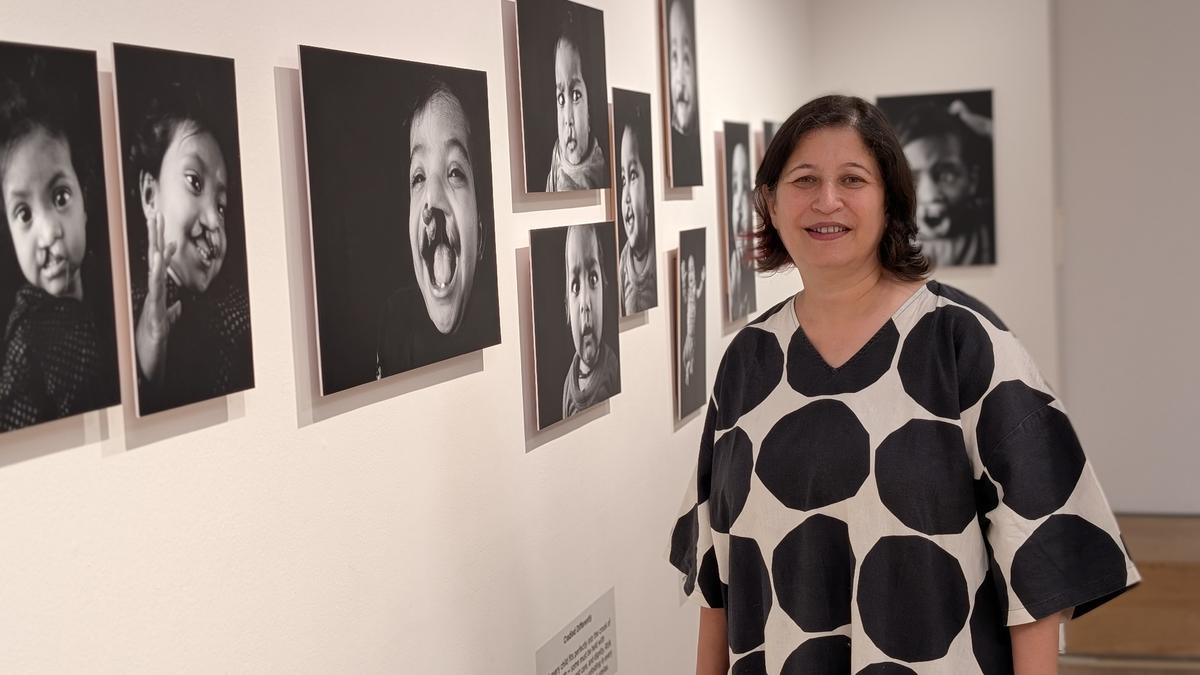In a world obsessed with perfection, airbrushed images, and filtered realities, a black-and-white portrait exhibition at the Kiran Nadar Museum of Art (KNMA) quietly but powerfully disrupts the noise. Every Smile Belongs is a compelling collaboration between Smile Train India, the world’s largest cleft-focused charity organisation, and photographer Komal Bedi Sohal, who has come up with a series of photographs of children born with cleft lips and palates. But these are not pictures of sorrow or medical condition; they are stories of hope, courage, playfulness, and identity.
“The exhibition is not about evoking pity; it is about pride,” says Komal, who transitioned from an advertising creative director to a visual storyteller . “When I pick up the camera, I do not want to tell a sad story. I want to tell a true story and one filled with light, hope and strength.”
“Advertising taught me how to communicate an idea in a few seconds,” she says. But the lens through which she now communicates is more intimate. “The goal is different; it is not about selling a product, but about restoring dignity,” she says.”
That dignity is woven through each portrait on display. Some of the children photographed are barely months old. Others are teenagers finding their way through dance, sports, or content creation. On one side of the gallery are newborns recovering from surgery, shot in quiet hospital rooms. On the other side, older children playful, vibrant, pose confidently in a public park.
The collaboration with Smile Train India began with a conversation but quickly became a calling. “When I started learning more about Smile Train, I was amazed,” Sohal recalls. “It is not just about correcting a cleft but about building lives.”
Smile Train’s approach resonated deeply with her. “Instead of glamour they wanted real, raw, honest storytelling. That was exactly what I also wanted.”
For Komal, empathy was not just an attitude. It was a technique. “I never walked in with a big flash or intimidating gear,” she explains. “For the pre-op photographs, I used natural light in hospital rooms. No equipment, no flashes. Just light through a dusty window.”
Each frame was a result of quiet trust. “I sat beside the mothers so that their babies would not be scared. I played with the babies, talked to the children, showed them how the camera worked. It was never just ‘point and shoot.’ It was a process of building trust.”
The post-operation portraits were shot at Sanjay Park, Delhi, during a frigid January morning. “The kids were bundled up in warm clothes. But as we played, talked, and warmed up, they relaxed. Some said they loved to dance. One was a beauty influencer. Another loved cricket. One boy was studying horticulture. So I made images that reflected them, not just their faces.”
What strikes throughout the exhibition is the absence of colour. “I insisted on shooting in black and white. I did not want the distraction of colour. The focus had to be on the emotion, the gesture, the personality.”
Komal’s aim was to create what she calls “naked portraits”, raw, honest, unfiltered. “We live in a world dominated by filters and retouching. I wanted to remind people that beauty lies in truth, not perfection.”
KNMA’s curation of the exhibition is appealing in that the portraits are grouped not by age or medical history, but by gestures, light and mood. One wall features children with expressive hands. Another plays with eye contact. Some are grouped by movement — like children playing ball. It is a small space, but has been used beautifully to evoke maximum emotional impact.
Out of many, Komal narrates one moment when a young girl saw her portrait for the first time and walked up to the frame, put her cheek against it, and just stood there, holding it. “That image, that moment is what this exhibition is all about,” she says.
At KNMA, No. 145, DLF South Court Mall, near Select Citywalk Mall, Saket District Centre, Sector 6, Saket; Till July 6; 10.30am to 6.30pm; Mondays closed
